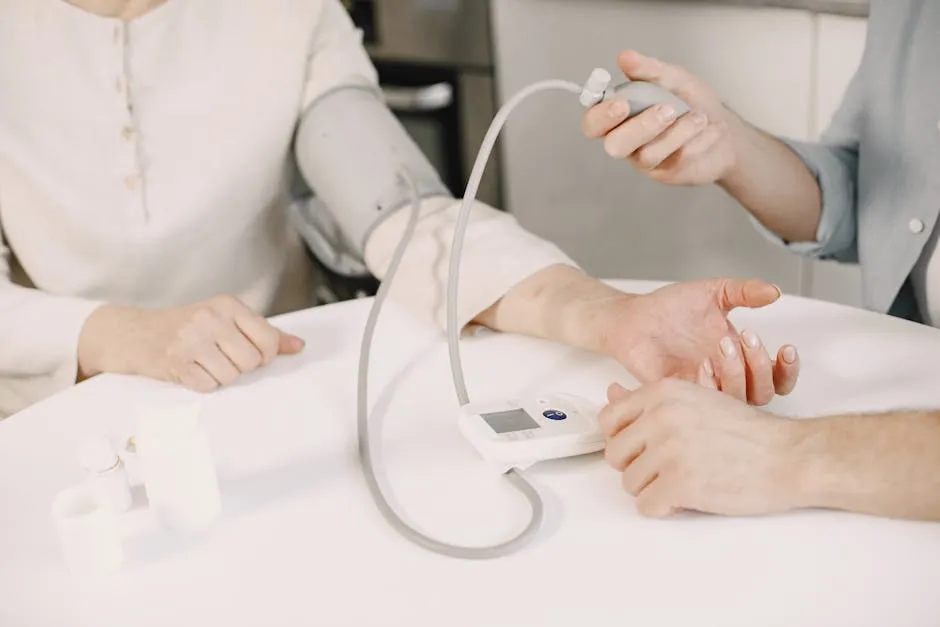Introduction
The Aptihealth CDPHP data breach has raised significant concerns. Data breaches in healthcare can compromise patient trust and safety. This incident affected approximately 19,805 patients, occurring between March 13, 2024, and April 10, 2024.
Summary and Overview
In this data breach, sensitive patient information was exposed. A total of 19,805 individuals were impacted. The breach occurred during a span from March 13 to April 10, 2024. Aptihealth received notification of the incident on April 17, 2024. The breach involved Sisense, a business associate responsible for data analytics. Their role raises important questions about data protection and compliance in healthcare.
To navigate the complex world of data protection, consider reading “Identity Theft Protection Book”. It’s a great resource for understanding how to safeguard your personal information in today’s digital age.

What Happened?
Description of the Breach
The breach involved unauthorized access to Sisense’s server. Hackers gained entry to sensitive patient data, which included names, birth dates, and health treatment information. Such exposure can lead to serious implications for the affected individuals.
Breach Timeline
The breach timeline is crucial for understanding the events. It began on March 13, 2024, and continued until April 10, 2024. The notification to Aptihealth happened shortly after, on April 17, 2024. This timeline highlights the duration of vulnerability for patient data.
Response by Sisense
In response to the breach, Sisense implemented security measures to secure their systems. They have since blocked the unauthorized individual from accessing the server. Ongoing reviews are likely to ensure such events do not recur.

Business Associate Responsibilities
Understanding Business Associates
In healthcare, a business associate refers to an individual or entity that performs certain functions on behalf of a covered entity, such as a healthcare provider. This relationship often involves accessing, handling, or processing protected health information (PHI). Under the Health Insurance Portability and Accountability Act (HIPAA), business associates have specific obligations. They must ensure the confidentiality, integrity, and security of PHI they receive. This includes implementing effective safeguards and reporting any breaches to the covered entity promptly.
For Sisense, the data analytics company involved in the Aptihealth breach, these obligations are critical. As a business associate, Sisense must adhere to the terms outlined in its business associate agreement (BAA) with Aptihealth. This agreement specifies how Sisense must protect patient data and the steps it must take in case of a security incident. Failure to comply can lead to significant legal and financial repercussions, highlighting the importance of their role in healthcare data security.

Accountability for Breaches
When it comes to breaches, both covered entities and business associates share responsibilities. Covered entities, like Aptihealth, are primarily responsible for the protection of PHI. However, business associates also play a crucial role in safeguarding this information. They must implement appropriate security measures to prevent data breaches and must notify the covered entity if a breach occurs.
In this case, Sisense’s failure to secure its systems resulted in the exposure of sensitive patient information. This incident underscores the importance of collaboration between business associates and covered entities. Both parties must work together to ensure compliance with HIPAA regulations and protect patient privacy. The shared responsibility model emphasizes that every entity involved in handling PHI has a crucial role in maintaining data security.
Legal and Regulatory Implications
HIPAA Violations
The Aptihealth data breach raises serious legal concerns, particularly regarding HIPAA compliance. Under HIPAA regulations, both covered entities and business associates must protect patient information. Aptihealth, as the covered entity, faces scrutiny for its data protection practices. Failure to secure protected health information (PHI) can lead to hefty fines and legal repercussions.
Sisense, as a business associate, is also accountable. If it failed to uphold its obligations under HIPAA, it could face significant consequences. This includes penalties for not implementing adequate security measures to prevent unauthorized access to sensitive data. The consequences of these violations can impact both companies’ reputations and financial stability.

Class Action Lawsuits
In the aftermath of the breach, class action lawsuits are already emerging. Legal firms are actively investigating the situation, focusing on the impact of the breach on nearly 20,000 affected individuals. These lawsuits often claim negligence, arguing that Aptihealth and Sisense did not take sufficient steps to safeguard patient data.
Ongoing investigations may uncover more details about the breach. If found liable, both companies could face considerable financial claims from affected patients. The outcome of these legal proceedings will likely influence how healthcare organizations approach data security in the future.
Patient Support and Resources
Aptihealth’s Response
In response to the breach, Aptihealth has established a dedicated call center. This support service aims to assist affected patients in understanding the implications of the breach. Patients can reach out to the helpline for information and guidance on next steps. This proactive approach is essential in rebuilding trust with impacted individuals.
The helpline operates Monday through Friday, from 9:00 a.m. to 9:00 p.m. ET. This availability ensures that patients can access support during convenient hours, addressing their concerns promptly.

Credit Monitoring and Protection
As for protective measures, it remains unclear if Aptihealth will provide credit monitoring services. Many organizations affected by data breaches often offer these services as a precaution. Credit monitoring can help individuals detect any unauthorized use of their personal information.
Aptihealth’s decision on whether to offer these services will be crucial. A timely announcement could reassure affected individuals and demonstrate the company’s commitment to their safety. It’s important for patients to stay informed and proactive about monitoring their personal information in the wake of this breach.

If you’re looking for a reliable way to manage your passwords, consider using a Password Manager. It helps you keep track of your numerous accounts securely, so you can avoid the headache of forgotten passwords.
Preventative Measures for Patients
Steps to Take Post-Breach
If you believe you have been affected by the Aptihealth data breach, it’s crucial to act quickly. Here are some steps to follow:
- Monitor Your Accounts: Regularly check your bank and credit card statements. Look for any unauthorized transactions.
- Review Your Medical Records: Request copies of your medical records from Aptihealth. Verify that all information is accurate and reflects your treatment history.
- Set Up Fraud Alerts: Contact one of the major credit bureaus to place a fraud alert on your credit report. This will make it harder for identity thieves to open accounts in your name.
- Consider Credit Monitoring: While Aptihealth’s response regarding credit monitoring is uncertain, consider enrolling in a service on your own. This will help you keep tabs on your credit report for any suspicious activity.
- Stay Informed: Follow Aptihealth’s updates on their website. They may provide additional resources or information on the breach.

General Data Protection Tips
To protect your personal data in the future, consider these practices:
- Use Strong, Unique Passwords: Create complex passwords for different accounts. A password manager can help you keep track.
- Enable Two-Factor Authentication: Where possible, use two-factor authentication (2FA) for an extra layer of security. Consider investing in a Two-Factor Authentication Device to keep your accounts safe.
- Be Wary of Phishing Attempts: Always verify the source of emails or messages requesting personal information. Avoid clicking on suspicious links.
- Limit Sharing Personal Information: Be mindful of the information you share online and with whom. Less sharing equals less risk.
- Regularly Update Software: Keep your devices and software updated. Security patches help protect against vulnerabilities.

By understanding the risks and implementing these tips, individuals can better protect their data from potential data breaches.
By taking these steps, you can better safeguard your personal information and reduce the risk of future breaches. Investing in tools like a Credit Monitoring Device can also help you stay on top of your financial health.

Conclusion
In summary, the Aptihealth CDPHP data breach has highlighted the critical need for robust data security measures in healthcare. Patients must actively monitor their health information and adopt practices that protect their data. Remember, staying informed is your best defense against identity theft and privacy violations. Always prioritize your personal health information security and reach out to Aptihealth if you have concerns or questions.
FAQs
What should I do if I was affected by the Aptihealth data breach?
If you suspect you were affected, act fast. Start by monitoring your bank and credit accounts for unusual activity. Consider requesting your medical records from Aptihealth to ensure accuracy. You may also want to set up a fraud alert with one of the major credit bureaus. It’s wise to stay vigilant; check your statements regularly and report any suspicious transactions immediately.
Are business associates liable for data breaches?
Yes, business associates can be held accountable for data breaches. Under HIPAA, they share responsibility for protecting patient information. This means they must implement security measures and report breaches to the covered entity promptly. If a breach occurs due to negligence on their part, they may face legal consequences, including fines and lawsuits.
Will Aptihealth provide credit monitoring services to affected patients?
Currently, it is unclear if Aptihealth will offer credit monitoring services. Organizations often provide these services to help affected individuals detect unauthorized use of their information. Keep an eye on Aptihealth’s updates for any announcements about protective measures that may be offered to impacted patients.
How can I protect my health information in the future?
To safeguard your health information, follow these simple tips. Use strong, unique passwords for all accounts, and enable two-factor authentication wherever possible. Be cautious about sharing personal information online, and regularly review your medical records for any inaccuracies. Finally, stay informed about phishing attempts and avoid clicking on suspicious links.
What data was compromised in the Aptihealth breach?
The Aptihealth breach exposed sensitive information for about 19,805 patients. Compromised data may include names, birth dates, addresses, health treatment details, and insurance information. Such exposure can lead to significant privacy concerns and potential identity theft for affected individuals.
Please let us know what you think about our content by leaving a comment down below!
Thank you for reading till here 🙂
Also, if you’re interested in personal development, check out “How to Win Friends and Influence People” by Dale Carnegie. It’s a timeless classic that can help you improve your social skills and networking.
Lastly, don’t forget to indulge in relaxation with an Essential Oil Diffuser. It can transform your space into a calming oasis, perfect for unwinding after a long day.
All images from Pexels




